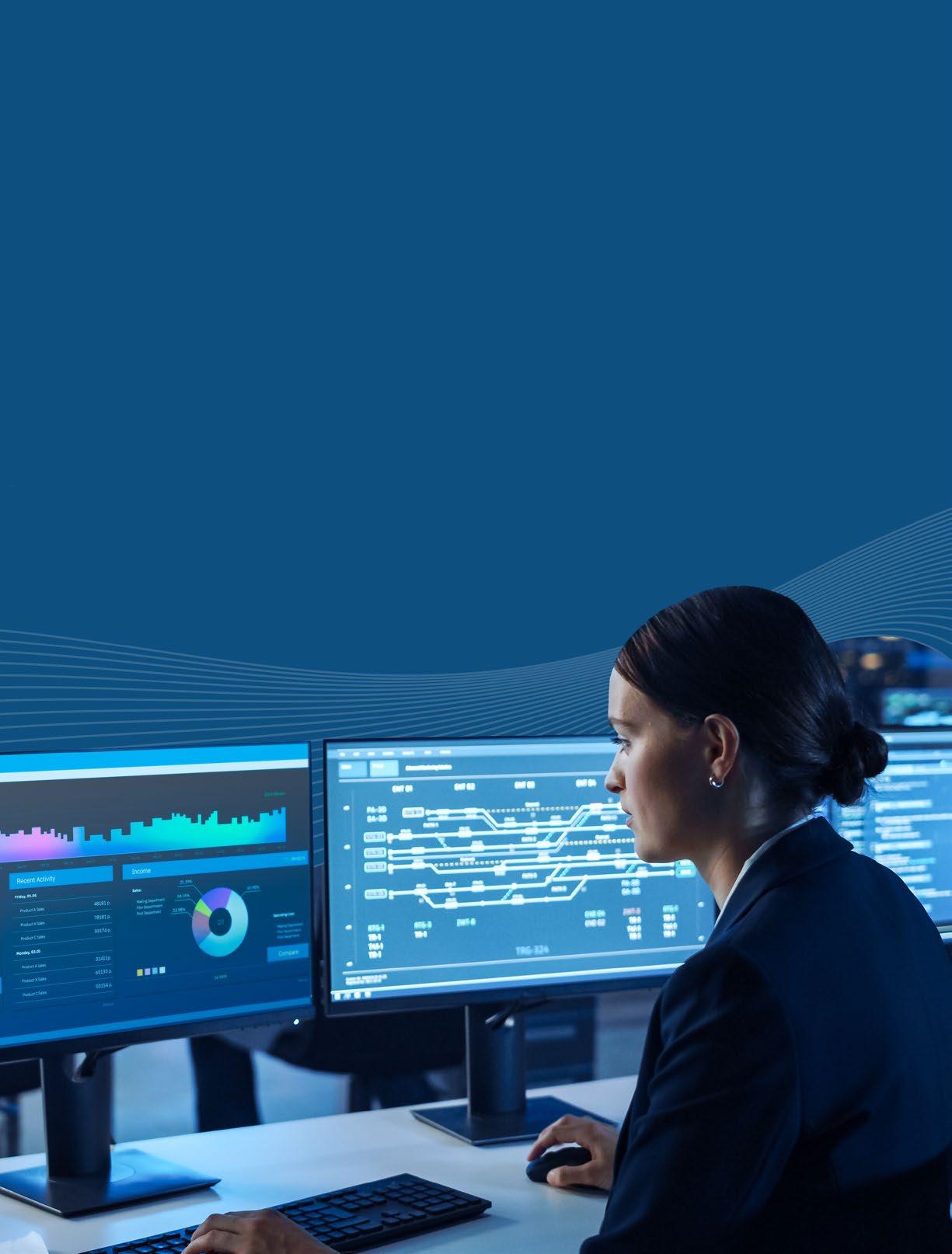
2 minute read
Your Cyber Briefing: Need to Know
Answer Key
1. D. Requiring multifactor authentication to access areas of your network that include sensitive information helps safeguard important data. This requires additional steps beyond logging in with a password – like a temporary code on a smartphone, or a key that’s inserted into a computer.
Advertisement
2. True. Backing up important files offline can help protect them in case of a cyberattack.
3. D. All staff should know to follow basic cybersecurity practices – and everyone should get regular training.
This is done by cultivating a culture of cybersecurity.
4. False. Cybercriminals target organizations of all sizes.
5. D. To help secure your router, change the default name and password, turn off remote management and log out as the administrator when not performing administrative functions.
Your Cyber Briefing: Need to Know
Cybersecurity Glossary: Common Terms
These are the cybersecurity terms and concepts that Maricopa County deemed necessary for its employees to know and understand. See what you recognize.
Security Superheroes
Encryption: The process of encoding data to prevent theft. Users can only access the data with a digital key.
Why it matters: Encryption makes it harder for bad guys to read your data.
Firewall: A defensive technology designed to keep out intruders. Firewalls can be hardware- or software-based.
Why it matters: This defensive layer essentially “circles the wagons” around your network.
Multifactor Authentication: Requiring users to provide at least two ways of identifying themselves, such as with a code provided in an email, text or voicemail in addition to a password or passcode.
Why it matters: Many attackers using your information are unable to get past a second round of authentication, even if they have the tools to unlock the first set of barriers. Virtual Private Network (VPN): A tool that allows users to remain anonymous while using the internet by masking the location and encrypting traffic.
Why it matters: Being anonymous is a great way to keep out of hackers’ hands.
Cloud: A technology that allows us to access files and services through the internet from anywhere in the world. Technically speaking, it’s a collection of computer servers with large storage capabilities that remotely serve requests.
Why it matters: Cybersecurity professionals have the daunting task of managing access to and the protection of services and data that usually reside on hardware they don’t control.
Continued on Page 8 »







